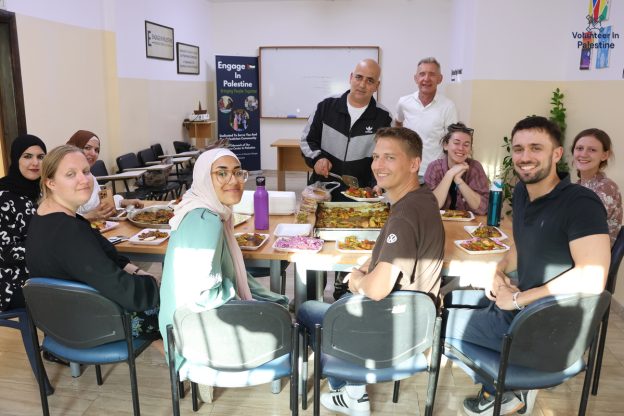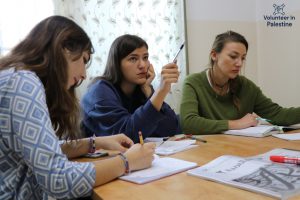Palestinian Arabic is the predominant dialect spoken by Palestinians residing in Palestine, Israel, and Palestinian diaspora communities. Acquiring proficiency in this spoken dialect can significantly facilitate communication and interaction with Palestinians in their daily lives when traveling in Palestine.
The Arabic dialects spoken in Palestine display a significant diversity rather than forming a single homogeneous linguistic unit. This diversity arises from various typological groupings shaped by geographical, historical, and socioeconomic factors. In two comparative studies of dialects, Palestinian Arabic emerged as the closest to Modern Standard Arabic, with the dialect spoken in the Gaza Strip being the primary exemplar.
Moreover, distinctions exist within Palestine, such as dialects spoken in the northern West Bank and those used by Palestinians in the Hebron region, which shares similarities with the Arabic spoken by descendants of Palestinian refugees residing in Jordan and southwestern Syria.
Finally, Palestinian dialects reflect a rich linguistic history, incorporating layers of languages that were spoken in the region in earlier times. These include Canaanite, Biblical and Mishnaic Hebrew, Aramaic (particularly Western Aramaic), Persian, Greek, and Latin. During the early modern period, Palestinian dialects also experienced influences from Turkish and European languages. Furthermore, since the establishment of Israel in 1948, Modern Hebrew has significantly influenced Palestinian dialects.
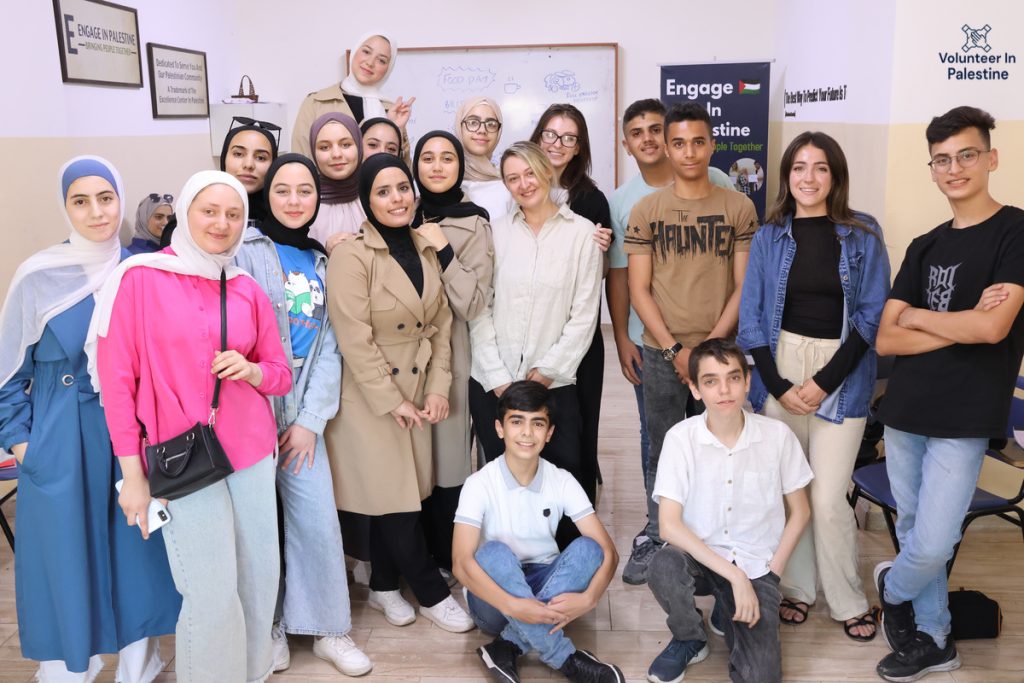
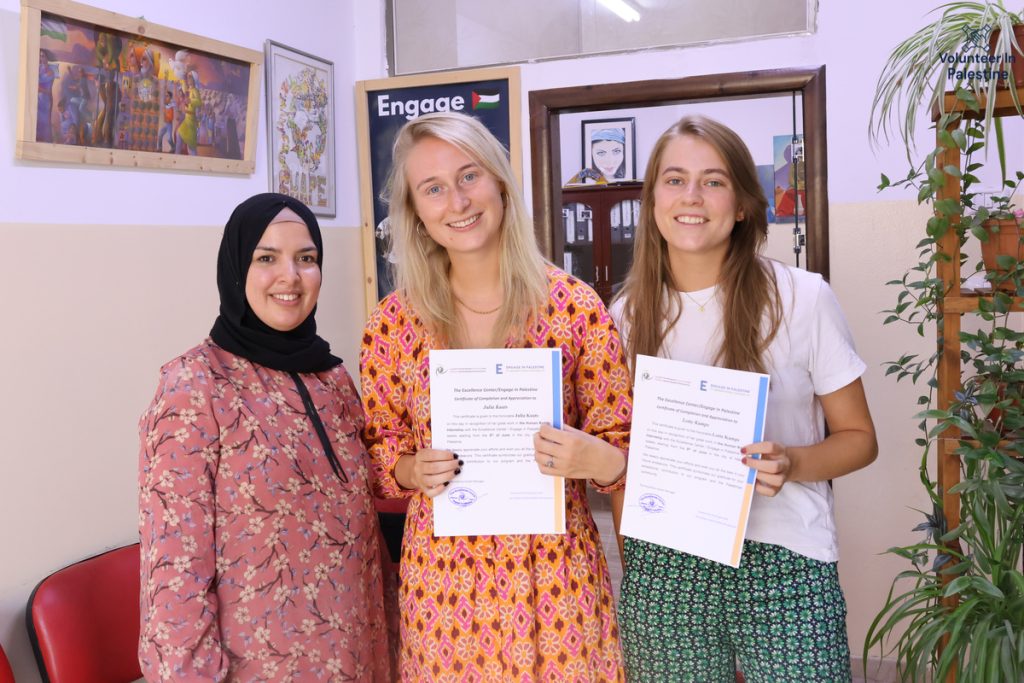
The Palestinian Dialect
The Palestinian dialect (اللهجة الفلسطينية) is the everyday spoken language and will be understood by the Palestinian people. Some of the words in Modern Standard Arabic are not really used in day-to-day conversation and some people may not understand the more formal language.
| Native speakers | 13 Million Palestinians |
| Language family | Afro-Asiatic > Semitic |
| Dialects | Fellahi; Madani |
| Writing system | Arabic alphabet |
| Dialect varieties | Intelligible varieties of Levantine Arabic |
Modern Standard Arabic and Palestinian Dialect
Modern Standard Arabic (MSA), known as العربية الفصحى in Arabic, serves as the standardized form of literary Arabic and finds its primary application in academic, news, business, legal, and media domains. It is crucial to stress that MSA is a formal language primarily reserved for written communication and formal or official contexts. In the everyday spoken interactions within Palestine, Palestinian Arabic dialects take precedence as the preferred means of communication.
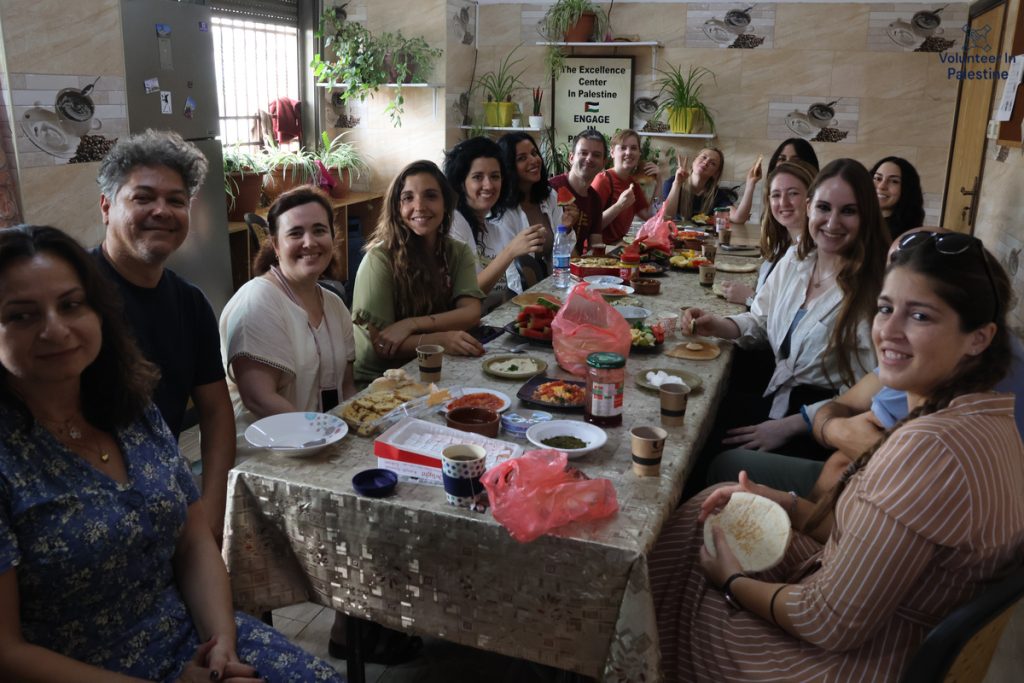
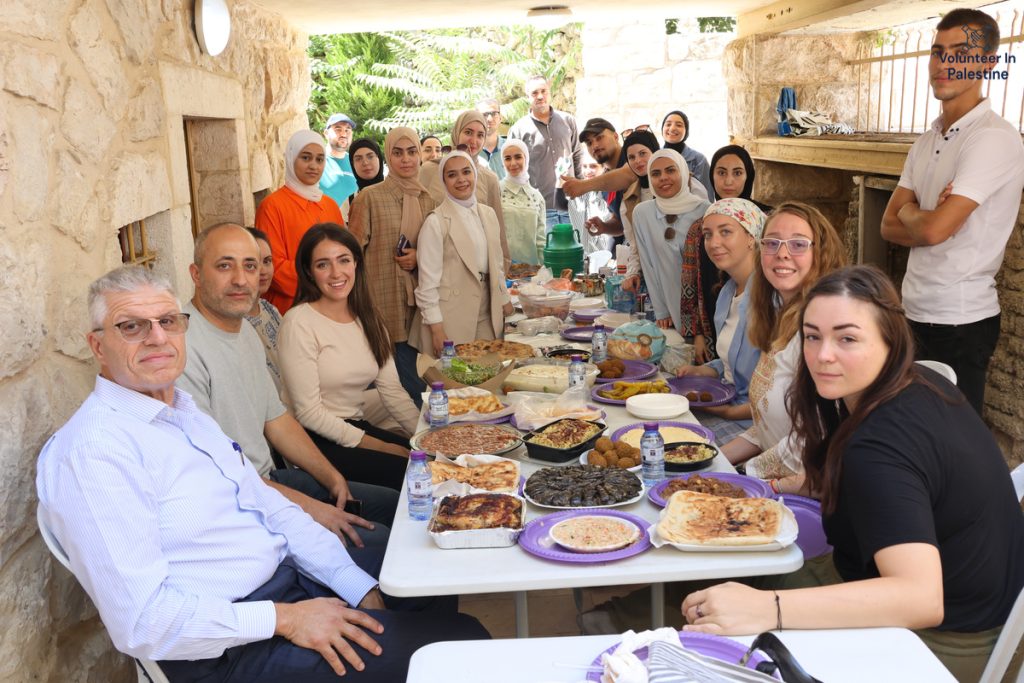
Remarkably, the Palestinian dialect is among the closest dialects to Modern Standard Arabic. Those who have studied this language or acquired a basic understanding of MSA will discover that transitioning to the Palestinian dialect is relatively straightforward. Learning the Palestinian dialect not only enhances your language skills but also builds upon the foundation of knowledge you’ve already gained.
An additional advantage is that Palestinian Arabic is one of the few Arabic dialects widely understood by speakers of other Arabic dialects. This broader comprehension can be particularly advantageous for international travelers when visiting other countries in the Middle East, further underscoring the practicality and utility of acquiring proficiency in Palestinian Arabic.
Levantine and Palestinian Arabic
Palestinian Arabic is a dialect continuum of mutually intelligible varieties of Levantine Arabic (Shami Arabic) spoken by most Palestinians in Palestine, Israel, and the Palestinian diaspora populations.
Further dialects can be distinguished within Palestine, such as spoken in the northern West Bank, that spoken by Palestinians in the Hebron area, which is similar to Arabic spoken by descendants of Palestinian refugees living in Jordan and south-western Syria.
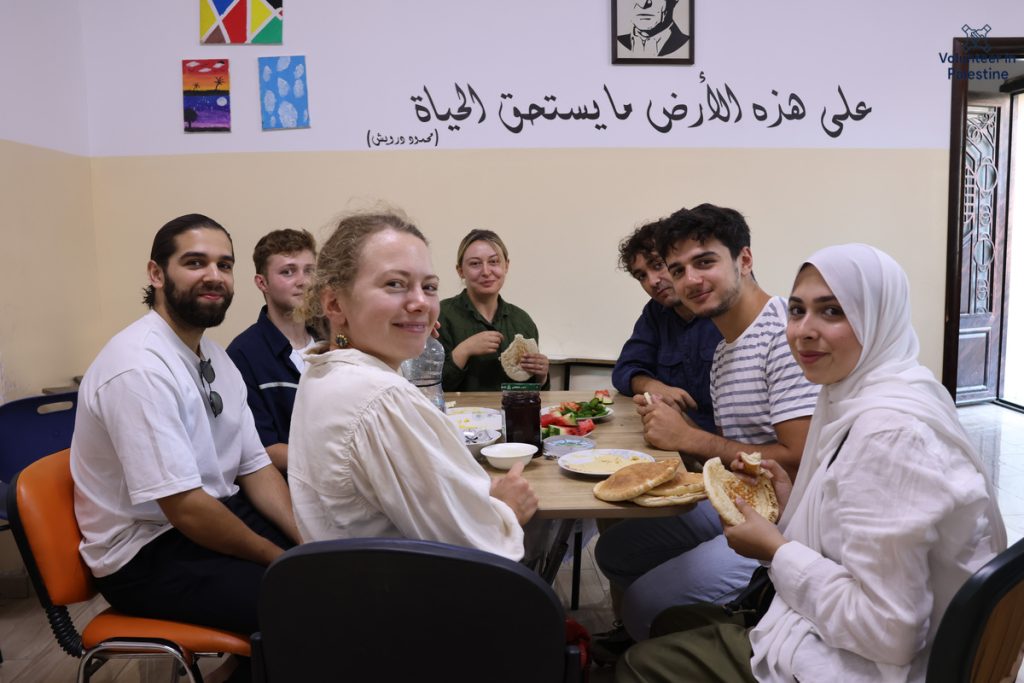
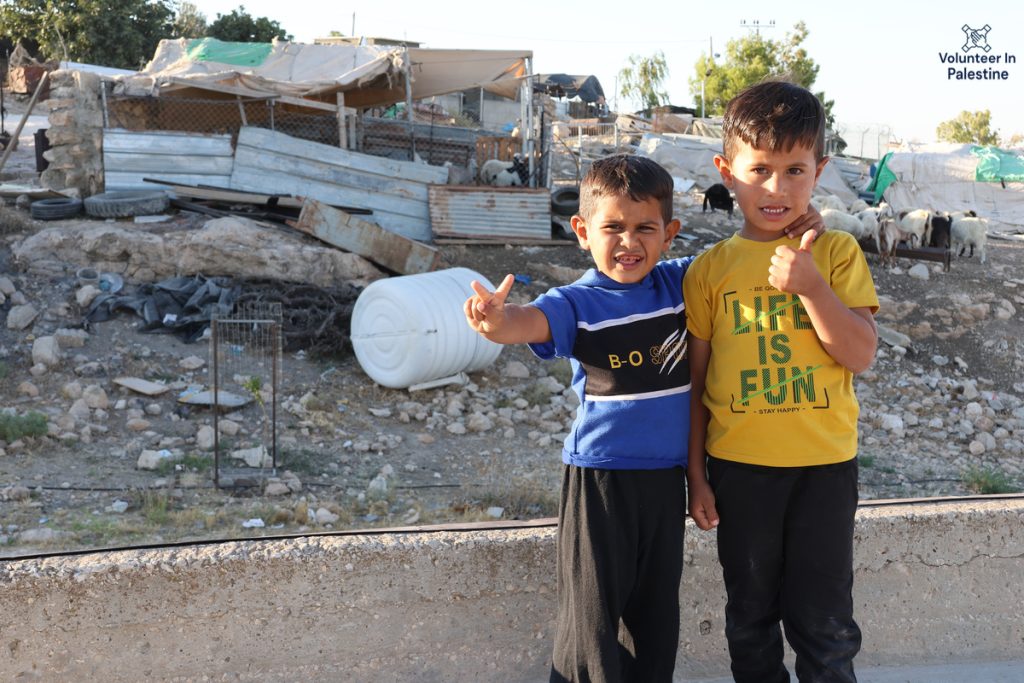
Contrasts with Other Levantine Arabic Dialects
The dialects spoken by the Arabs residing in the Levant, along the eastern Mediterranean coast, collectively referred to as Levantine Arabic, constitute a distinct group of Arabic dialects. Manuals for the “Syrian dialect” emerged in the early 20th century, and in 1909, a dedicated “Palestinian Arabic” manual was published.
Palestinian Arabic dialects fall under the category of Levantine Arabic due to their exhibition of the following defining Levantine characteristics:
- A conservative stress pattern, retaining greater proximity to Classical Arabic than any other region within the Arab world.
- Usage of the indicative imperfect tense with a prefixed ‘b.’
- Frequent occurrence of Imāla, particularly affecting the feminine endings in consonant-initial contexts (e.g., names ending in -eh).
- Realization of [ʔ] for /q/ in urban areas and [q] in Druze communities, with additional variants, such as [k], in rural settings.
- A shared lexicon among Levantine dialects.
Variations Between the Southern and Northern Forms of Levantine Arabic
Distinctive variations between the southern and northern forms of Levantine Arabic, including Syrian Arabic and Lebanese Arabic, are more pronounced in non-urban dialects. The principal distinctions between Palestinian Arabic and northern Levantine Arabic are as follows:
- Phonetically, Palestinian dialects differ from Lebanese dialects in the pronunciation of classical diphthongs /aj/ and /aw. In Palestinian dialects, these have simplified to [eː] and [o:], similar to Western Syrian dialects, while in Lebanese dialects, they retain their diphthongal pronunciation: [eɪ] and [oʊ].
- Palestinian dialects distinguish themselves from Western Syrian dialects regarding short stressed /i/ and /u/. In Palestinian dialects, these maintain a more open [ɪ] and [ʊ] pronunciation, rather than neutralizing to [ə] as seen in Syrian dialects.
- The propensity for Imāla of /a:/ differs, with Palestinian dialects showing less prevalence compared to Lebanese and Syrian dialects.
- In terms of morphology, plural personal pronouns differ between Palestinian and Syrian/Lebanese dialects.
- Palestinian: إحنا[‘ɪħna] ‘we,’ همه[‘hʊmme] or hunne [هنه] ‘they,’ كو[ku] كم-[-kʊm] ‘you,’ هم-[-hʊm] هني [henne] ‘them.’
- Syrian/Lebanese: نحنا[‘nɪħna] ‘we,’ هنه[‘hʊnne] ‘they,’ كن-[-kʊn] ‘you,’ هن-[-hʊn] ‘them.’
- Northern Palestinian: كو[-kʊ] ‘you,’ ـهن[-hen] ‘them,’ هنه[hinne] ‘they.’
- In verb conjugation, the imperfect tense 1st and 3rd person masculine forms feature distinct prefix vowels.
- Palestinian: بَكتب[‘baktʊb] ‘I write,’ بَشوف[baʃuːf] ‘I see.’
- Lebanese/Syrian: بِكتب[‘bəktʊb], بْشوف[bʃuːf].
- Hamza-initial verbs in the imperfect tense often feature an [o:] prefix sound in Palestinian, differing from Western Syrian dialects.
- For example, the colloquial expression for “I am eating” or “I eat” is commonly [‘bo:kel] / [‘bo:tʃel] in the Galilee and Northern West Bank, while Western Syrian dialects use [‘ba:kʊl].
Conjugation of the Imperative
- Conjugation of the imperative form varies; ‘Write!’ is اكتب [‘ʊktʊb] in Palestinian, but كتوب [ktoːb] in Lebanese and Western Syrian, with different stress, vowel, and length.
- For verb negation and prepositional pseudo-verbs, Palestinian dialects, like Egyptian Arabic, typically use the suffix ش [ʃ] in addition to the preverb negation /ma/.
- E.g., ‘I don’t write’ is مابكتبش [ma bak’tʊbʃ] in Palestinian, but مابكتب [ma ‘bəktʊb] in Northern Levantine (although some areas in southern Lebanon utilize the ش [ʃ] suffix).
- In terms of vocabulary, Palestinian Arabic is closer to Lebanese than to Western Syrian.
- E.g., ‘is not’ is مش [məʃ] in both Lebanese and Palestinian (although in a few villages مهوش [mahuʃ] and مهيش [mahiʃ] are used), while it is مو [mu] in Syrian.
- ‘How?’ is كيف [kiːf] in Lebanese and Palestinian, whereas it is شلون [ʃloːn] in Syrian.
Palestinian Arabic Phrases
Below are just a few Palestinian Arabic phrases that may be useful for a visit to the West Bank, Palestine:
| English Translation | Arabic Phrase | Pronunciation |
| Hi (colloquial, between friends and family ) | !هاي | haay! |
| Hello | مرحبا | marhaba |
| Hello (response) | اهلين | Ahlain |
| Greetings | السلام عليكم | as-salaam 3aleikum |
| Greetings (response) | وعليكم السلام | wa-3aleikum as-salaam |
| Good morning | صباح الخير | SubaaH al-kheir |
| Response to good morning | صباح النور | SubaaH an-nuur |
| Good evening | مساء الخير | masaa al-kheir |
| Response to good evening | مسا النور | masaa an-nuur |
| Good night | تصبح على خير | tiSbaH 3ala kheir |
| Come in/welcome/please have a seat | تفضّل | tafaDDal tafaDDali |
Meeting People And Asking Them How Are They Doing
| English Translation | Arabic Phrase | Pronunciation |
| How are you? (notes on ak/ik) | كيف حالك؟ كيفك؟ | kiif Haalak? kiif Haalik? kiifak? kiifik? |
| What’s news? | شو اخبارك | shu akhbaarak? |
| Everything good? | كله تمام؟ | kullu tmaam? |
| I’m well | منيح كويس الحمد لله | mniH (very Levantine) kwayyis (colloquial Arabic) al-Hamdu li-llah (formal) |
| Fine | تمام | tmaam |
| Long time no see (notes on ak/ik) | يلي زمان ما شفتك | yalli zmaan maa shiftak/ik |
| What’s your name? (notes on ak/ik) | شو اسمك | shu ismak/ismik? |
| Where are you from? | من وين انت؟ | min wein inta/inti? |
| Where are you? | وينك؟ | waynak? waynik? |
| Pleased to meet you | تشرفنا | tasharrafna |
To Say I Do Not Speak Good Arabic
| English translation | Arabic Phrase | Pronunciation |
| I don’t understand Arabic | انا ما بعرف عربي | maa ba3rif 3arabi |
| I don’t speak Arabic | ما بحكي عربي | ma baHki 3arabi |
| Do you speak English? | بتحكي انغليزي ؟ | btiHki ingileezi? |
| Excuse me (to get attention) | عفواً عن إذنك بلاذن | 3afwan 3an iznak bil izn |
| Yes (casual) | آه | ah (pronounced like “o” in North American “bottle”) |
| Yes | نعم | na3m |
| No | لا | laa |
| Thank you Many thanks | شكراً الف شكر | shukran alf shukr |
| You’re welcome | عفواً العفو | 3afwan al-3afu (alternative) |
| You’re welcome (slang) | تكرم | tikram |
| How much is this? | قدّيش هذا؟ | addeish haadha? |
| This is very expensive! | هذا غالي كتير! | haadha ghaali ktiir! |
Goodbye And Some Useful Arabic Phrases
| English Translation | Arabic Phrase | Pronunciation |
| Goodbye | مع السلامه | ma3 as-salaameh |
| See you later! | بشوفك بعدين! | bshufak ba3dein! |
| Congratulations! | مبروك | mabruk |
| Bless him/her! (when talking about a child) | ماشاء الله | mashallah! |
| Bon appetit/Enjoy your meal | صحتين | SaHtein |
| I miss you | اشتقتلك | shta2tilak shta2tilik |
| I love you | بحبك | bHibbak (m) bHibbik (f) |
| Stop! Enough! | خلاص | khalaaS! |
| Maybe | يمكن | yimkin |
| May I…? | ممكن؟ | mumkin? |
| No problem/cool/fine | بسيطة | baseeTah |
| My good friend! | حبيبي | Habiibi! |
| Let’s go | يلا | yallah |
| Swear to god | والله | wallah |
| For sure, definitely | اكيد | akiid |
| walaw | ولو | It’s OK, of course, don’t mention it |
| I want… | بدي… | biddi… |
| What do you want to do? | شو بدك تسوي؟ | shu biddak tisawwi/itsawwi? (pronunciation is regional) |
| OK | طيب، طب | Tayyib, Tab (shorter, more colloquial) |
| God willing | ان شاء الله | inshallah |
Learn Palestinian Arabic by Traveling In Palestine
It is easy for international visitors to travel from Hebron to other parts of Palestine and visit different cities and various historical, cultural, and natural sights. Travelling in Palestine also offers many opportunities for internationals to interact with locals and practice their Palestinian Arabic. Some of our guests arrive in Palestine with no prior knowledge of the Arabic language but they soon pick up common words and phrases.
Moreover, you will be surprised by how quickly you become able to communicate with the people you meet and it is very satisfying when you discover that you can put your newly learned words into everyday use such as when ordering a coffee, asking for directions or simply exchanging greetings with the people you meet. Do not be afraid or shy about using your new language skills, Palestinians generally appreciate it when internationals make the effort to learn Palestinian Arabic and will not mind if you don’t get everything quite correct! If they are able to help you, they will do so.
Furthermore, Volunteer in Palestine organizes trips to many different historical and cultural sites, factories, governmental (and non-governmental) institutions, and refugee camps. These experiences provide international students, volunteers and interns to further develop their Palestinian Arabic speaking skills.
Summary
Whether you are a beginner or a more advanced student of Arabic, Volunteer in Palestine offers internationals many opportunities to learn and enhance their Palestinian Arabic. Internationals may learn Palestinian Arabic during Arabic lessons at Volunteer in Palestine, by living with a Palestinian host family, by interacting with Palestinian students and locals, and/or by travelling around in beautiful Palestine.
Visit our website to learn more about how to book a stay as a student, volunteer, or intern at the Volunteer in Palestine. If you also wish to study elsewhere in Palestine, we can sometimes recommend other suitable places in which to further your studies. We at Volunteer in Palestine are always happy to answer any questions and provide any information that you require. Many of our previous students, volunteers, and interns are also willing to share their experiences about their time with us. We look forward to welcoming you! We hope you enjoyed reading the Learning Palestinian Arabic article.
Related Posts
Find us online
Whatsapp:+972 599 479 880
Website: https://ecpalestine.org/
EC Website: https://excellencenter.org/
Volunteer in Palestine: https://volunteerinpalestine.org/
Instagram: https://www.instagram.com/excellence.center
Facebook page: https://www.facebook.com/ExcellenceCenter
Facebook account: https://www.facebook.com/RafatECHebron
Watch us on Youtube: https://www.youtube.com/channel/UCsQSLdFZWZcBm6Uj0XMYuKg
Visit and Explore Palestine: https://www.facebook.com/ExplorePalestine
